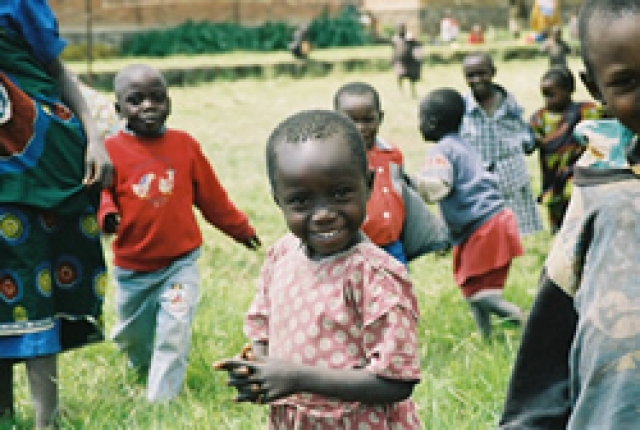Towards an African Region free from Neglected Tropical Diseases
 Brazzaville, 5 September 2013 -- On the list of disease prevention and control plans developed by the World Organization (WHO) Regional Office from Africa, the one with a vision for “an African Region free of Neglected Tropical Diseases” (NTDs) must rank among the most ambitious and comprehensive.
Brazzaville, 5 September 2013 -- On the list of disease prevention and control plans developed by the World Organization (WHO) Regional Office from Africa, the one with a vision for “an African Region free of Neglected Tropical Diseases” (NTDs) must rank among the most ambitious and comprehensive.
Known as “The Regional Strategic Plan for Neglected Tropical Diseases in the African Region 2014–2020” the Plan and its related Regional Strategy aim to pursue the goal of accelerating the reduction of the disease burden by controlling, eliminating and eradicating targeted NTDs in the African Region.
Details of the targets are provided by Dr Francis Kasolo, the Director of the Disease Prevention and Control Cluster at the WHO Regional Office for Africa.
He says, "The targets of the Plan by 2020 include the eradication of guinea-worm disease and yaws; sustained elimination of leprosy; the regional elimination of elephantiasis (Lymphatic Filariasis) and blinding trachoma; elimination of river blindness (onchocerciasis) and bilharzia (schistosomiasis) in majority of countries; and the control of Buruli ulcer, intestinal worms, sleeping sickness, rabies and leishmaniasis (a disease transmitted to humans through the bite of a female sand fly).”
The Regional Strategic Plan is anchored on four objectives that together can strengthen programme capacity to achieve NTD goals and targets, in line with the global NTD Roadmap and the recent World Health Assembly resolution on NTDs.
The four objectives outlined in the Plan are: scaling up access to interventions and building the capacity of health systems; enhancing planning for results, resource mobilization and financial sustainability of national NTD programmes; strengthening advocacy, coordination and national ownership, and enhancing monitoring, evaluation, surveillance and research
The Plan also sets out in detail the actions that should be taken by Member States, Partners and WHO in order to achieve the objectives.
Dr Kasolo says that the Regional Strategic Plan is a potent tool to address NTDs and their adverse effects on child development, pregnancy outcome, and agricultural worker productivity in the region.
It is estimated that half of the NTD burden is in Africa, and all 47 countries in the WHO African Region are endemic for at least one of the 17 diseases on WHO’s NTD list. Indeed, 37 Member States (79%) have a combination of at least five of these diseases, some of which affect only or mainly the African continent.
NTDs thrive in places with unsafe water, poor sanitation, and limited access to basic health care. These diseases of poverty permanently curtail human potential and cause an enormous economic burden for endemic countries.
Children are the most vulnerable. For example, hookworm infection in school-age children contributes to drops in school attendance, poor performance and reduction in future earnings – by as much as 40 per cent, according to some estimates.
Adults are not spared. Pregnant women with hookworm are at risk for anaemia, giving birth to low-weight babies, and even dying during childbirth. The incapacitation of NTD patients reduces their productivity and largely contributes to poverty over generations. In addition, the stigma associated with some NTDs results in individuals being shunned by their families and communities; sometimes, the afflicted are reluctant to seek care.
Controlling or eliminating NTDs will contribute significantly to lifting millions of persons out of poverty by increasing access to education because NTDs are believed to infect more than 400 million school–aged children throughout the developing world. Therefore, treating their infections is the single most cost–effective way to boost school attendance, opening the door to growth and learning for the next generation of workers.
Additionally, controlling and eliminating NTDs strengthens worker productivity thereby contributing significantly to economies of countries through increased worker productivity.
Is the end in sight for NTDs in the African Region?
The answer may well lie with how the Regional NTD Strategy and the Regional Strategic Plan for NTDs are implemented to realize the vision of “an African Region free of Neglected Tropical Diseases”.
The two documents will be discussed by the WHO Regional Committee for Africa which is currently taking place in Brazzaville, Congo.
AFR/RC63/10 Regional Strategy on Neglected Tropical Diseases in the WHO African Region 2014–2020


